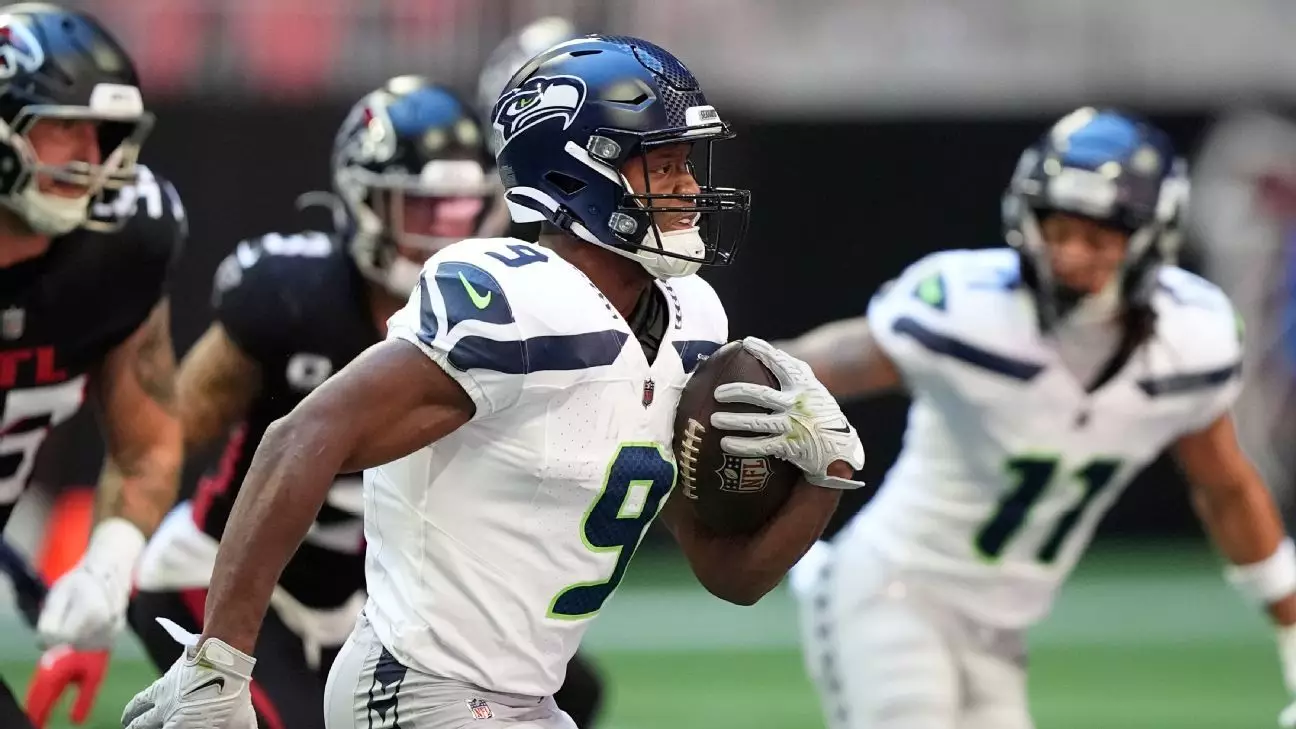The Seattle Seahawks face a significant challenge as they prepare for their crucial NFC West matchup against the Arizona Cardinals this Sunday. One primary concern for the team is the absence of Kenneth Walker, their lead running back, who has been ruled out due to a calf injury. Walker, who missed practice sessions on Thursday and Friday, was initially deemed questionable. However, following evaluations, the team officially acknowledged his out status on Saturday, citing calf issues as the sole reason. This decision has forced the Seahawks to rethink their backfield lineup.
Kenneth Walker’s absence is pivotal given his role as the Seahawks’ leading rusher. Having clocked significant snaps and touches in the previous game against the New York Jets, Walker’s sudden injury presents formidable challenges for the Seahawks’ offensive strategy. Coach Mike Macdonald revealed that Walker had shown no immediate signs of limitation during the game, which underscores the unpredictable nature of such injuries in professional sports. The coaching staff’s concerns about the timing and onset of the injury reflect the fast-paced nature of professional football, where players may not initially exhibit symptoms until later.
Without their star back, Seattle turns to Zach Charbonnet, who has already filled in for Walker this season during his previous absence due to an oblique injury. The coaching staff will rely heavily on Charbonnet, whom they trust to step up under pressure, alongside Kenny McIntosh. This duo needs to rally for an efficient running game, especially as the Seahawks aim to keep their winning momentum against a divisional opponent.
In a move to bolster their backfield options, the Seahawks have elevated George Holani from the practice squad. Holani, an undrafted rookie from Boise State, not only offers depth as a running back but also adds versatility in the return game—a critical facet of the Seahawks’ overall game plan. The team recently moved on from their previous return specialists, indicating a strategic shift aimed at enhancing their special teams following costly fumbles in earlier games.
Moreover, the team has also elevated backup punter Ty Zentner from the practice squad, anticipating that starting punter Michael Dickson will need support due to lingering back issues. The coaching staff’s careful planning demonstrates a commitment to ensuring that all areas of the squad are fortified, particularly when the stakes are this high.
Special Teams Strategy and Player Adjustments
With the return game being an area of focus, Seattle’s coaching staff has expressed their intent to optimize personnel. Even with new players stepping in, Macdonald has acknowledged that the team has been working on various options, including utilizing wide receiver Jaxon Smith-Njigba and Charbonnet for kickoffs. This adaptability is crucial as the Seahawks attempt to maintain their competitive edge during this challenging period.
The Seahawks must also keep an eye on Tre Brown, who’s listed as doubtful due to a hamstring issue. Any setbacks here could further complicate the team’s plans on both offense and defense. The careful management of player health and performance appears more vital than ever as they head into a game that could have significant implications for their playoff positioning.
The Road Ahead in the NFC West
Current standings show the Seahawks holding a fragile one-game lead in the NFC West with a record of 7-5, while the Cardinals hover close behind at 6-6. According to ESPN Analytics, the Seahawks face a 38% probability of winning the division, a figure that could increase significantly with a victory against Arizona. Conversely, a loss could reduce their chances to just 20%.
The stakes are exceedingly high as Seattle enters this crucial contest not just for standings, but also for momentum as the regular season approaches its climax. The Seahawks must navigate the obstacles presented by injuries and roster adjustments while also confronting a formidable division rival. The next few games will be telling of how well this team can adapt and persevere under pressure, proving that both strategic decisions off the field and dynamic performances on it will ultimately dictate their fate in this competitive landscape.

